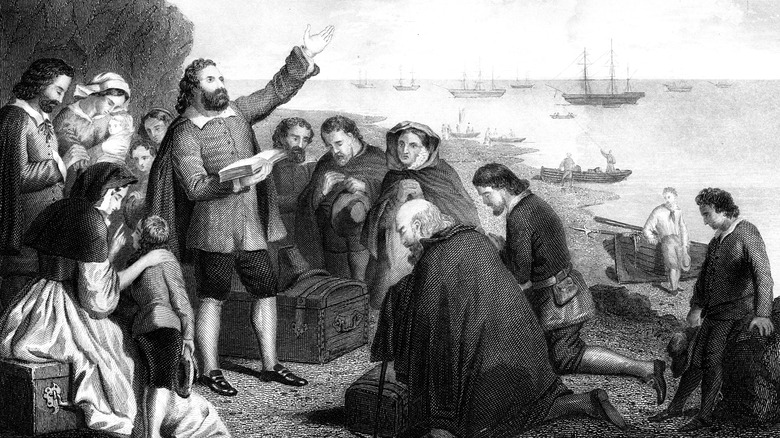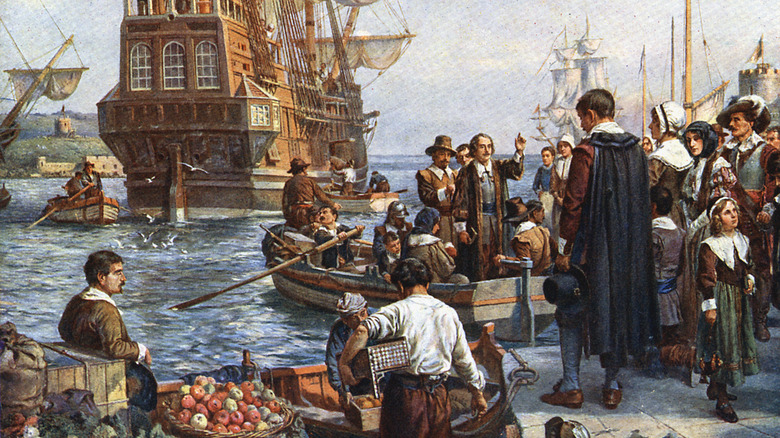The Reason The Pilgrims Really Came To America
Much of what you think you know about history is, if not outright untrue, then at the very least is vastly oversimplified. There are many reasons for this, not the least of which is the fact that teaching schoolchildren about cultural, religious, economic, and other nuance behind the history may be a bit too much information at once, and the education system seems to favor the simplest explanation.
One example of this has to do with the group now known as the Pilgrims. The religious group fled persecution in England and eventually wound up in Massachusetts, setting into motion a series of events that would end in the formation of the United States. You may have been taught that the group fled Europe and sought out a new life in the New World where they could practice their religion freely and without outside influence. Well, that's true, but only to a point. In fact, the Pilgrims' main reasons for fleeing to America were considerably more mundane.
The Pilgrims fled poverty
As The Washington Post explains, the Pilgrims did flee religious persecution in England — that much is true. Suffice to say that religious freedom, as we know it and understand it in the 21st century, effectively did not exist at this time, and the separatist group that we call the "Pilgrims" were in real danger of being jailed in England for practicing their beliefs. So they fled — to Holland.
In Holland, specifically in the city of Leiden, according to History, they found religious tolerance and acceptance virtually unheard of anywhere else in Europe. In fact, the group had been in Holland for a decade before they made the decision to strike out for the New World.
So why did they leave? In a word: poverty. The only work they could find was slogging it out in Leiden's textile mills for penurious wages, and when the textile market collapsed, they were looking at destitution. At the same time, the group was concerned about the effects the Dutch lifestyle were having on their community, and the group's leaders decided that the best thing was a true restart on a new continent. In the Massachusetts colony, they would still be English citizens — something they wanted — but would not be subject to arrest and jail for practicing their beliefs. The rest, as they say, is history.

